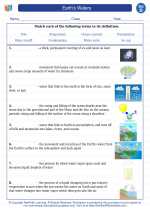Dispersal in Science
Dispersal in science refers to the movement of organisms from their original habitat to new areas. This process plays a crucial role in the distribution of species and the colonization of new environments. There are several mechanisms through which dispersal occurs, including migration, wind dispersal, water dispersal, and seed dispersal by animals.
Mechanisms of Dispersal
- Migration: This involves the seasonal movement of animals from one region to another in search of food, breeding grounds, or favorable conditions for survival.
- Wind Dispersal: Seeds, spores, or small organisms can be carried over long distances by the wind, allowing them to colonize new areas.
- Water Dispersal: Aquatic organisms and plants can be dispersed by water currents, enabling them to reach new habitats and expand their range.
- Seed Dispersal by Animals: Many plants have evolved mechanisms to entice animals to disperse their seeds, either by sticking to fur or being consumed and later excreted in a new location.
Importance of Dispersal
Dispersal is essential for the survival and evolution of species. It allows organisms to find new resources, escape competition, avoid predators, and adapt to changing environmental conditions. Additionally, dispersal contributes to the genetic diversity of populations, which is crucial for their long-term viability.
Study Guide
- Define dispersal and explain its significance in the natural world.
- Describe at least three mechanisms of dispersal and provide examples of organisms that utilize each mechanism.
- Discuss the role of dispersal in the process of species colonization and distribution.
- Explain how human activities can impact the dispersal of species, both positively and negatively.
- Conduct a research project on a specific species and its dispersal patterns, including the factors that influence its movement and the consequences for its population dynamics.
Understanding the concept of dispersal is crucial for comprehending the interconnectedness of ecosystems and the dynamics of species distribution. It also highlights the importance of conservation efforts to ensure the continued dispersal and survival of diverse organisms in the natural world.
.◂Science Worksheets and Study Guides Fourth Grade. Earth's Waters

 Worksheet/Answer key
Worksheet/Answer key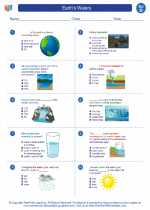
 Worksheet/Answer key
Worksheet/Answer key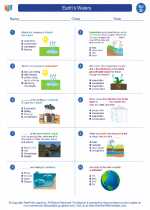
 Worksheet/Answer key
Worksheet/Answer key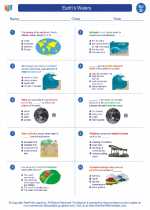
 Vocabulary/Answer key
Vocabulary/Answer key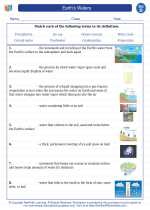
 Vocabulary/Answer key
Vocabulary/Answer key